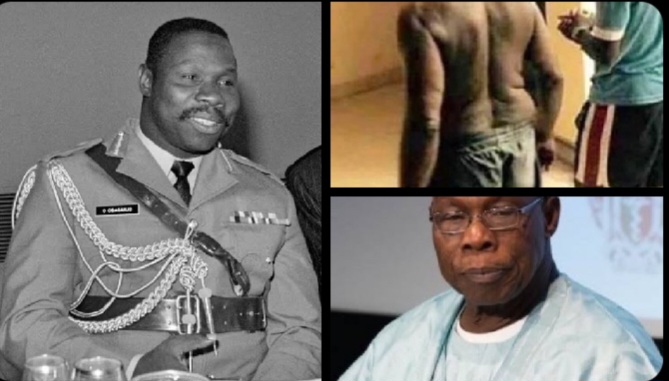Olusegun Obasanjo’s life is a remarkable tale of resilience, redemption, and an unwavering commitment to leadership. His journey from a military leader to a political prisoner and eventually a civilian president highlights the unpredictable nature of history and the power of perseverance.
Born on March 5, 1937, in Abeokuta, Ogun State, Olusegun Obasanjo joined the Nigerian Army in 1958. His military career was marked by rapid promotions and significant contributions during the Nigerian Civil War, where he played a crucial role in leading federal troops to victory.
In 1976, following the assassination of General Murtala Mohammed, Obasanjo assumed the role of Head of State. During his tenure, he became the first military leader in Nigerian history to voluntarily hand over power to a civilian government, ushering in the Second Republic in 1979. This move earned him widespread respect, both locally and internationally, as a champion of democracy.
Despite his achievements, Obasanjo’s fortunes changed dramatically in the 1990s. After retiring from public office, he became a vocal critic of General Sani Abacha’s military regime, condemning its corruption and human rights abuses.
In 1995, he was accused of plotting a coup against Abacha, a charge many believed was politically motivated. Obasanjo was arrested, tried, and sentenced to death, though the sentence was later commuted to life imprisonment. His incarceration in Yola Prison was marked by harsh conditions, but it also became a period of reflection and spiritual growth.
While in prison, Obasanjo wrote extensively, including his memoir This Animal Called Man, and deepened his faith, becoming a born-again Christian. International pressure from human rights organizations and global leaders eventually led to his release in 1998 following Abacha’s sudden death.
Obasanjo’s release marked the beginning of a new chapter in his life. In a surprising turn of events, he entered the political arena once again, this time as a civilian. Backed by the People’s Democratic Party (PDP), he contested the 1999 presidential election and won, becoming Nigeria’s first leader to transition from military to civilian rule.
As president, Obasanjo served two terms from 1999 to 2007, focusing on economic reforms, anti-corruption initiatives, and strengthening Nigeria’s democratic institutions. His leadership restored Nigeria’s global standing, and his administration negotiated debt relief with international creditors, saving billions for the country.
Obasanjo’s journey from a decorated military officer to a prisoner and then to a democratically elected president is a testament to his resilience and adaptability. His life story serves as an inspiration, showcasing the ability to overcome adversity and transform challenges into opportunities.
Repost to educate and inspire others about this extraordinary chapter in Nigeria’s history.




